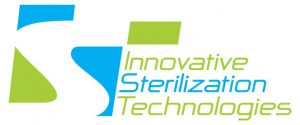It wasn’t until midway through his career as a neurosurgeon that Dr. George Cybulski, now chief medical officer of Vested Medical, Inc., in Illinois, first visited a sterile processing department to introduce himself and learn how it worked.
That’s a step that few doctors ever take.
In fact, Cybulski’s first visit to sterile processing generated surprise, because surgeons did not typically enter the department unless it was to complain about a missing instrument or similar problem, the central processing supervisor told him.
The more he got to know the people and procedures in sterile processing, the more he realized how important those communications are.
“I love surgery, and the instruments are obviously an integral part of surgery,” Cybulski said in a recent Beyond Clean podcast entitled, “From Neurosurgeon to Certified Sterile Processing Technician.” “In the process of being a neurosurgeon, I started to really look at the other components which contributed to the flow and to a successful operation, and that took me into the home of sterile processing of our instruments.”
Cybulski, who would later become certified in sterile processing, remembers moments as a surgeon when there would be a “pregnant pause.”
It would occur “when we ask for an instrument or we ask for an implant and we get silence, because that instrument is not on the table ready for us to use or the implant is not the right implant that they have on the table,” he said during the podcast.
At that point everything just stopped, and people were trying to figure out why something was missing and who was to blame, and the calls to sterile processing and elsewhere began, to locate the missing implant or to secure another laminectomy or craniotomy tray, he said.
“The flow, obviously, whatever rate it was occurring at in the operation, comes to a halt,” he said.
He describes those moments and what follows as “a post-traumatic stress disorder” which can impact the culture of an operating room.
“It has a lingering effect because it adds minutes and delay to the next case or finishing this case,” he said. “And then that gives an impetus for the team to try and move along the following case to make sure that everything there is present. And so, it’s very disruptive.”
By sterile processors understanding why surgeons need certain critical instruments and by surgeons understanding the processing procedure, redundancy can be eliminated, instrument trays pared down and cleaning made more efficient.
Over more than 30-years, Cybulski practiced neurosurgery in academic medical centers as chairman of neurosurgery, in one of the largest public health systems in the VA system, and was a U.S. Army neurosurgeon in Operation Desert Shield Desert Storm. His is far from the lone voice touting the importance of communication between the OR and sterile processing.
The topic has been highlighted in a variety of publications including OR Manager Inc., which made three recommendations:
- Expose Sterile Processing Department (SPD) staff to the OR.
- Bring OR staff to the SPD.
- Invest in SPD certification.
“The real opportunities to improve performance are in better communication, education, leadership, and teamwork,” according to the post entitled “Better Communication and Teamwork Improve Sterile Processing Efficiency.”
In a recent article in General Surgery News entitled “ Why Surgeons Should Partner With Their Central Surgery Department,” writer David Taylor III echoes the sentiment: “When surgeons have a better understanding of the department and its inner workings, they can begin to truly understand where the issues lie.”
Stay engaged on trending topics in the healthcare space and have access to articles, exciting news, and educational content by subscribing to our Blog!
If you would like FREE Online Continuing Education Credits (CE’s) visit our CE Page!
ONE TRAY® and EZ-TRAX™- Efficient, Effective, Economical
Follow us on Facebook or connect with us on LinkedIn. You can also join our ONE TRAY® Questions Page on Facebookor LinkedIn where you can ask any questions you have, any time of day, and get answers from industry experts.

